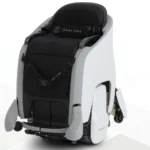Samsung Electronics cleared Broadcom’s qualification test for its HBM3E 8-layer prototype, marking a potential breakthrough for the South Korean memory giant’s efforts to regain traction in the high-bandwidth memory market.
Multiple testing equipment sources indicate that Samsung’s improved 8-Hi product has successfully passed the verification, completing the pre-mass production evaluation stage, according to industry reports. The qualification comes after Samsung addressed power efficiency and heat-related feedback from customers for products manufactured at its Pyeongtaek facility.
The Broadcom approval offers Samsung an alternative route into AI chip supply chains as it continues struggling with Nvidia’s more stringent requirements. Samsung reportedly failed its third attempt at obtaining Nvidia’s certification for 12-layer HBM3E chips in June 2025, with a retest now targeted for September.
For fabless companies like Broadcom, Samsung’s potential return represents strategic supply chain diversification. SK Hynix has dominated the HBM market with 70% market share, creating dependency risks that alternative suppliers could mitigate. The move also provides leverage in pricing negotiations with the dominant player.
SK Hynix overtook Samsung for the first time to lead global DRAM revenues with a 36% share in the first quarter of 2025, driven largely by its HBM dominance. Samsung currently holds approximately 15% of the HBM3E market compared to SK Hynix’s 60% and Micron’s 25%.
Samsung already supplies HBM3E to AMD and continues pursuing qualification for Nvidia’s next-generation B100 GPU. However, the company faces an uphill battle as SK Hynix and Micron are the main suppliers of HBM for Nvidia, with SK Hynix securing most orders well into 2026.
Industry observers note that while the Broadcom qualification signals technical progress, Samsung’s revenue impact may remain limited given its competitors’ head start in securing major customer relationships.


